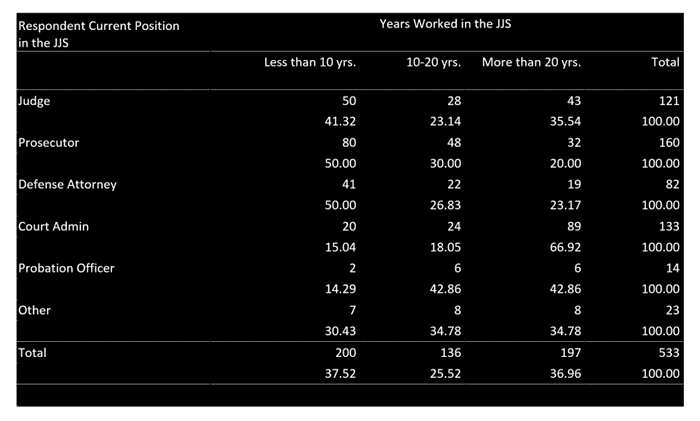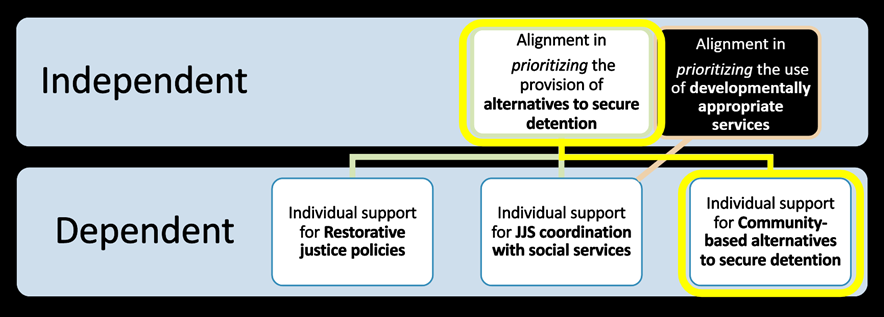
May the Odds be Ever in Your Favor: Exploring the Role of System-Actor Alignment in Juvenile Justice Outcomes
(2022)
Abstract
What determines juvenile delinquency policy and decision-making? Whereas theoretically, laws, sanctions, and dispositions should apply equitably to similar instances of delinquency, research and practice have shown that this is not the case. Studies cite demographic factors, risk assessments, and other youth-related characteristics as having strong effects on placement and disposition. The present study explores system-level factors using data from the 2005-2007 National Survey of Juvenile Justice Professionals. This paper studies the alignment between the sentiments of 534 juvenile court judges, chief probation officers, court administrators, prosecutors, and defense attorneys in 44 states and the District of Columbia, and the procedural norms in their jurisdiction. Through the lenses of bounded rationality and street-level bureaucracy theories, this study examines how system-actor alignment impacts juvenile justice policy and practice support. Limitations and implications for further study discussed.





